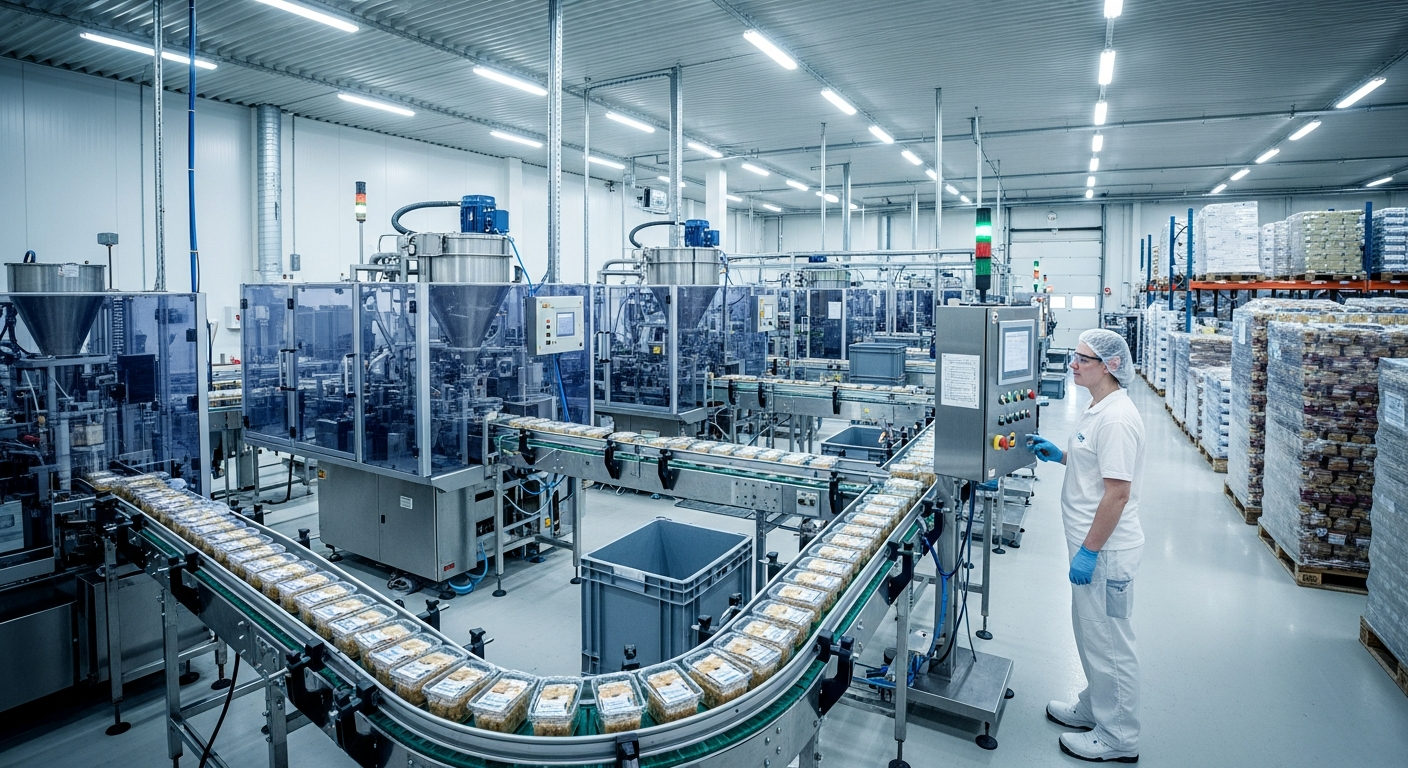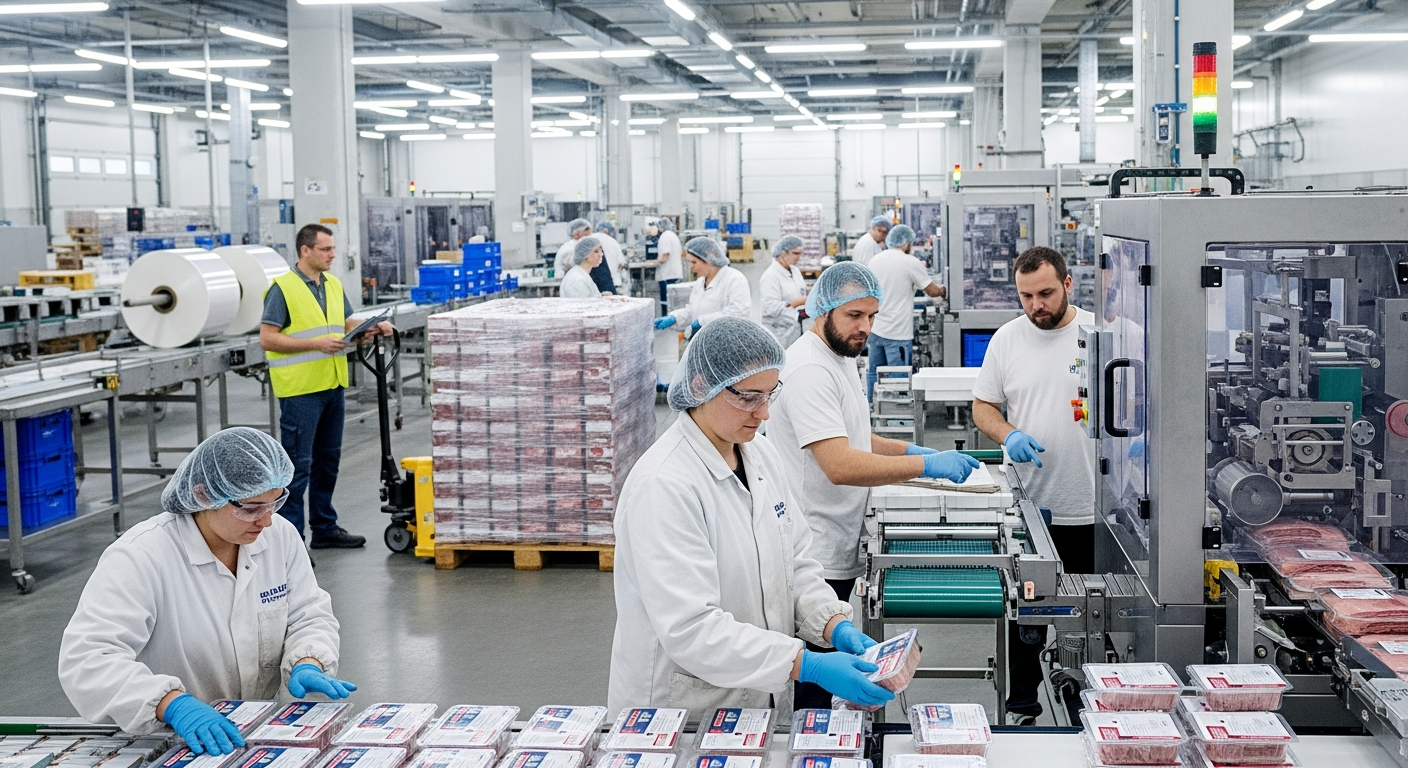Career Opportunities with Food Packing Companies in the UK
The food packing industry represents a significant sector of the UK job market, offering various employment pathways for individuals with different skill levels and career aspirations. This sector forms a crucial link in the food supply chain, ensuring products reach consumers safely and efficiently. Food packing companies in the UK range from small local operations to large manufacturing facilities, providing employment opportunities across multiple regions with different entry requirements and advancement possibilities.

Skills That Food Packing Employers Value
When seeking positions in food packing, understanding what employers look for can give candidates a competitive edge. Attention to detail ranks highly among desired traits, as employees must maintain strict quality control standards and follow specific packing protocols. Physical stamina is essential due to the repetitive nature of many tasks and potentially long periods of standing. Food safety knowledge, including understanding of hygiene practices and cross-contamination prevention, is fundamental in this industry. Additionally, employers value reliability, teamwork capabilities, and adaptability to varying production demands.
Technical abilities, though varying by position level, often include familiarity with packaging equipment, basic mathematical skills for measurements and inventory, and understanding of food preservation techniques. Many employers provide training for these technical aspects, making attitude and soft skills equally important during the initial hiring process.
Why Food Packing Companies Maintain Consistent Hiring
The food packing sector demonstrates relative stability in its workforce demands for several reasons. First, the essential nature of food production makes the industry somewhat resistant to economic downturns compared to other sectors. Seasonal fluctuations create periodic hiring surges, particularly around harvest times or holiday periods when demand increases. Additionally, many companies experience regular turnover due to the entry-level nature of some positions, creating continuous openings.
Technological advancements, rather than eliminating positions, often transform job requirements in the industry. Automation may reduce certain manual tasks but simultaneously creates needs for machine operators and quality control specialists. The UK’s food security priorities and changing consumer preferences for pre-packaged, convenience, and ready-to-eat foods further support consistent employment opportunities in this sector.
Population growth and expanding export markets also contribute to the industry’s resilience, requiring maintained or expanded production capacity and consequently stable workforce needs.
Daily Tasks in Food Packing Environments
The typical workday in food packing varies based on position level and facility type, but certain core responsibilities remain common. Production line workers generally engage in repetitive tasks such as operating packaging equipment, manual packing of products, labeling, and basic quality inspection. These positions often involve working at specified line speeds within team-based production systems.
Quality control responsibilities include checking product weights, ensuring proper sealing, verifying labeling accuracy, and inspecting for contamination. Machine operation and maintenance tasks might involve setting up equipment at shift start, monitoring performance, performing basic troubleshooting, and conducting end-of-shift cleaning procedures.
Documentation forms another critical component, with workers recording production volumes, quality checks, and any issues encountered during shifts. Many facilities operate with strict hygiene protocols requiring proper uniform wearing, handwashing procedures, and adherence to food safety regulations.
Career Advancement Opportunities in Food Packing
The food packing industry offers several pathways for professional growth beyond entry-level positions. Team leader roles typically represent the first step on the management ladder, supervising small groups and coordinating daily operations. With experience and additional qualifications, advancement to shift supervisor or production manager becomes possible, overseeing larger teams and broader operational aspects.
Specialized roles represent another advancement pathway, with opportunities in quality assurance, food safety compliance, maintenance engineering, or logistics coordination. These positions often require additional certifications or training but provide higher compensation and greater responsibility.
Many larger companies offer structured career development programs, including apprenticeships in food manufacturing, quality assurance training, and management development tracks. Investment in further education, such as food science qualifications or operations management certifications, can accelerate career progression within the industry or provide transferable skills for related sectors.
Salary Expectations and Working Conditions
The compensation structure in food packing varies based on factors including location, company size, position level, and shift patterns. Entry-level production line workers typically earn between £9.50 and £11.00 per hour, while team leaders or specialized machine operators may command £11.00 to £14.50 per hour. Supervisory positions generally offer annual salaries ranging from £25,000 to £32,000, with production managers earning £35,000 to £45,000 or more depending on facility size and responsibilities.
Working conditions typically involve shift patterns, which may include early mornings, evenings, and potentially weekends. Many facilities operate temperature-controlled environments, which might be chilled for certain food products. Personal protective equipment requirements commonly include hairnets, gloves, appropriate footwear, and specialized clothing for hygiene purposes.
Prices, rates, or cost estimates mentioned in this article are based on the latest available information but may change over time. Independent research is advised before making financial decisions.
Finding Opportunities in the Food Packing Industry
Accessing career opportunities in this sector involves several approaches. Major food manufacturing companies often advertise positions directly through their corporate websites or dedicated recruitment portals. Industry-specific recruitment agencies specializing in food production and manufacturing maintain relationships with multiple employers and can match candidates with suitable openings.
Job fairs, particularly those focused on manufacturing or food production, provide opportunities for direct interaction with employers. Online job platforms and local employment services also regularly list food packing positions, especially for entry-level roles. Networking through industry associations and professional groups can additionally provide access to unadvertised positions or insider knowledge about upcoming opportunities.
When approaching this industry, it’s important to understand that this article provides general informational insights rather than specific active job listings. The information presented reflects general industry trends and shouldn’t be interpreted as representing current specific openings or active hiring campaigns at any particular company.




